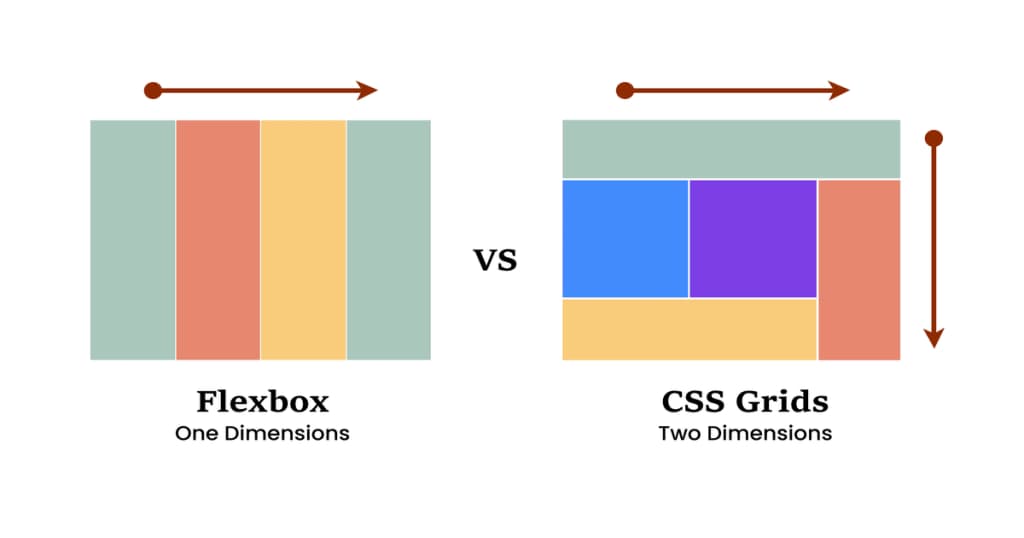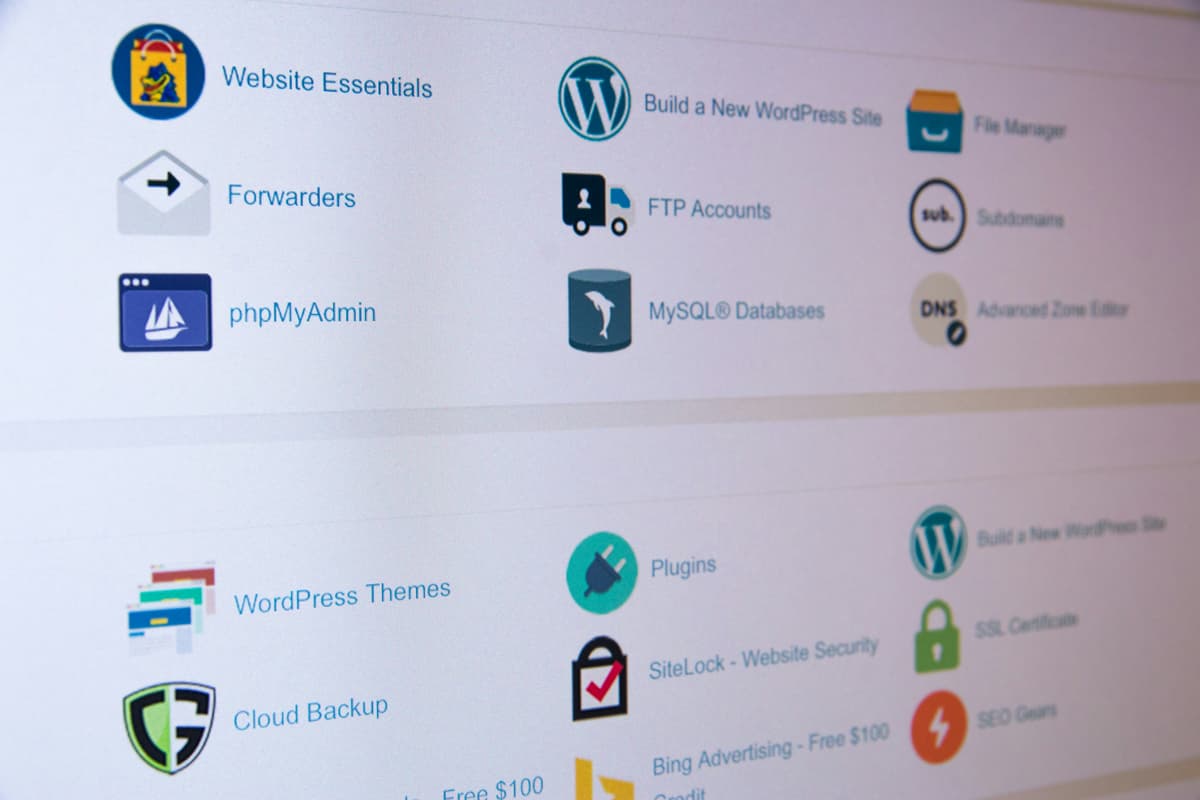The Rise of No-Code and Low-Code Platforms: Revolutionizing Web Development in 2024

 Written by Massa Medi| January 14, 2025
Written by Massa Medi| January 14, 2025
In the ever-evolving landscape of technology, a revolutionary trend has been gaining momentum, reshaping how we approach software development. The rise of no-code and low-code platforms is not just a fleeting phenomenon; it's a transformative force that's democratizing the world of web and application development. As we navigate through 2024, these platforms have become more than just tools—they're catalysts for innovation, empowering individuals and businesses to bring their digital visions to life with unprecedented speed and efficiency.
In this comprehensive exploration, we'll dive deep into the world of no-code and low-code development. We'll uncover how these platforms are breaking down traditional barriers, analyze their impact on the tech industry, and examine the opportunities and challenges they present for developers, entrepreneurs, and enterprises alike. Whether you're a seasoned programmer, a business leader, or someone with a great idea but limited technical skills, understanding this paradigm shift is crucial in today's digital-first world.
Demystifying No-Code and Low-Code Platforms
At their core, no-code and low-code platforms represent a fundamental shift in how software is created. These intuitive, visual development environments are designed to make application building accessible to a broader audience, dramatically reducing the need for traditional coding skills.
No-Code Platforms: The Ultimate Democratizers
No-code platforms take the concept of visual programming to its logical extreme. They offer:
- Intuitive drag-and-drop interfaces for designing user interfaces
- Visual workflow builders for creating complex business logic
- Pre-built templates and components for common application features
- Built-in data management and storage solutions
- Automated deployment and hosting services
With no-code platforms, users can create fully functional web applications, mobile apps, and even complex backend systems without writing a single line of code. This opens up the world of software development to designers, marketers, entrepreneurs, and other non-technical professionals.
Low-Code Platforms: Bridging the Gap
Low-code platforms offer a middle ground between traditional coding and no-code solutions. They provide:
- Visual development tools similar to no-code platforms
- The ability to extend functionality with custom code when needed
- More advanced customization options and control over the development process
- Better integration capabilities with existing systems and databases
- Support for more complex applications and enterprise-grade solutions
Low-code platforms are particularly appealing to professional developers looking to accelerate their workflow and businesses that need to balance rapid development with specific customization requirements.
The Technology Behind the Magic
The power of no-code and low-code platforms lies in their sophisticated underlying technologies:
- Visual Programming Languages (VPLs): These form the backbone of the drag-and-drop interfaces, translating visual components into functional code.
- Artificial Intelligence and Machine Learning: Many platforms incorporate AI to suggest optimal layouts, automate testing, and even predict user needs.
- Cloud Computing: Leveraging cloud services allows these platforms to offer scalable, globally accessible development environments and hosting solutions.
- APIs and Microservices: The ability to easily integrate with a vast ecosystem of third-party services greatly expands the capabilities of applications built on these platforms.
The Transformative Benefits of No-Code and Low-Code Development
1. Accelerated Development and Time-to-Market
In today's fast-paced digital economy, speed is often the differentiator between success and failure. No-code and low-code platforms offer a significant advantage in this regard:
- Rapid Prototyping: Ideas can be transformed into working prototypes in hours or days, rather than weeks or months.
- Iterative Development: The visual nature of these platforms makes it easy to quickly implement changes and improvements based on user feedback.
- Faster Time-to-Market: Businesses can launch new products or features much quicker, gaining a competitive edge in the market.
For example, a startup using a no-code platform like Bubble was able to launch their MVP (Minimum Viable Product) in just two weeks, a process that would have typically taken 2-3 months with traditional development methods.
2. Dramatically Reduced Development Costs
The financial implications of no-code and low-code development are substantial:
- Lower Personnel Costs: Reduced need for large teams of specialized developers.
- Minimized Infrastructure Expenses: Many platforms include hosting and maintenance, eliminating the need for separate server and database management.
- Reduced Training Costs: The intuitive nature of these platforms means less time and money spent on technical training.
A mid-sized enterprise reported saving over $500,000 in the first year after adopting a low-code platform for their internal tool development, factoring in reduced hiring needs and faster deployment times.
3. Empowering Citizen Developers
Perhaps the most revolutionary aspect of no-code platforms is their ability to turn non-technical individuals into app creators:
- Democratized Innovation: Ideas are no longer bottlenecked by technical limitations or developer availability.
- Cross-Departmental Collaboration: Marketing, sales, and operations teams can actively participate in building tools they need.
- Rapid Problem-Solving: Employees can quickly create solutions to their unique challenges without waiting for IT support.
A marketing team at a large e-commerce company used a no-code platform to create a customer feedback analysis tool, a task that would have typically been queued for months in the IT department's backlog.
4. Bridging the IT Skills Gap
With the global shortage of skilled developers, no-code and low-code platforms offer a timely solution:
- Alleviating Developer Shortages: Businesses can build and maintain applications even when facing difficulties in hiring technical talent.
- Upskilling Existing Workforce: Current employees can be trained to use these platforms, enhancing their skill sets and value to the organization.
- Focusing Skilled Developers on Complex Tasks: By offloading simpler development tasks to citizen developers, professional coders can concentrate on more challenging and innovative projects.
A recent study by Gartner predicts that by 2025, 70% of new applications developed by enterprises will use low-code or no-code technologies, up from less than 25% in 2020.
Leading the Charge: Popular No-Code and Low-Code Platforms
The no-code and low-code market has exploded with options, each catering to different needs and skill levels. Let's explore some of the standout platforms:
No-Code Platforms
- Bubble
Bubble has emerged as a powerhouse in the no-code space, especially for creating web applications. Its strength lies in its flexibility and the depth of functionality it offers without requiring any coding knowledge.
- Visual programming for both frontend and backend logic
- Built-in database and user authentication systems
- Ability to create complex, responsive designs
- Extensive plugin ecosystem for added functionality
Success Story: An entrepreneur used Bubble to build a fully functional freelance marketplace, complete with user profiles, job postings, and a payment system, in just six weeks.
- Webflow
Webflow has revolutionized the website building space, offering unprecedented control over design and functionality without coding.
- Advanced visual CSS editing capabilities
- Built-in CMS for dynamic content management
- Ecommerce functionality for online stores
- Responsive design tools for mobile-first development
Case Study: A digital agency switched to Webflow for client websites, reducing development time by 60% and increasing client satisfaction due to the ease of content updates.
- Airtable
Airtable blurs the line between spreadsheet and database, offering a unique approach to data management and app creation.
- Flexible data structuring with relational databases
- Visual interfaces for data entry and manipulation
- Automation features for workflow optimization
- Integrations with a wide range of other tools and services
Real-world Application: A non-profit organization uses Airtable to manage their entire operation, from volunteer scheduling to donation tracking, replacing multiple disparate systems with a single, cohesive platform.
Low-Code Platforms
- OutSystems
OutSystems is a leader in the enterprise low-code space, offering robust capabilities for building complex, scalable applications.
- Visual development environment for web and mobile apps
- Enterprise-grade security and scalability features
- AI-assisted development tools
- Extensive integration capabilities with existing systems
Enterprise Example: A large financial institution used OutSystems to rebuild their customer portal, reducing development time from an estimated 2 years to just 6 months, while also improving performance and user experience.
- Microsoft Power Apps
As part of the Microsoft Power Platform, Power Apps leverages the vast Microsoft ecosystem to offer powerful low-code development capabilities.
- Seamless integration with Microsoft 365 and Dynamics 365
- AI Builder for incorporating AI capabilities into apps
- Strong data connectivity options, including on-premises data sources
- Cross-platform app development for web and mobile
Corporate Use Case: A manufacturing company created a suite of internal tools using Power Apps, including a quality control app that reduced defect reporting time by 75% and improved overall product quality.
The choice between these platforms often depends on specific project requirements, existing tech infrastructure, and the balance between ease of use and customization needs. As the market evolves, we're seeing increased specialization, with platforms catering to specific industries or types of applications, further expanding the possibilities of no-code and low-code development.
Redefining the Role of Professional Developers
The proliferation of no-code and low-code platforms has sparked debates about the future of traditional software development. However, rather than posing a threat, these platforms are reshaping the landscape in ways that create new opportunities for professional developers.
1. Shifting Focus to High-Value Tasks
As no-code platforms handle more routine development tasks, professional developers can focus on more complex, high-value projects:
- Architecture and System Design: Designing robust, scalable systems that can support no-code applications.
- API Development: Creating powerful, flexible APIs that extend the capabilities of no-code platforms.
- Performance Optimization: Fine-tuning applications for speed, efficiency, and scalability beyond what no-code platforms can achieve out-of-the-box.
- Advanced Security Implementation: Developing sophisticated security measures for sensitive or highly regulated industries.
For instance, a team of developers at a healthcare technology company now focuses on creating secure, HIPAA-compliant APIs and services, which are then used as building blocks in no-code applications by other departments.
2. Emerging Roles and Specializations
The no-code/low-code ecosystem is creating new career paths for developers:
- No-Code/Low-Code Consultants: Experts who can advise on platform selection, best practices, and integration strategies.
- Platform Extenders: Developers who create custom components, plugins, and integrations to enhance no-code platforms.
- Automation Specialists: Focusing on creating complex workflows and integrations between various no-code tools and traditional systems.
- No-Code/Low-Code Trainers: Teaching and mentoring citizen developers within organizations.
A survey by Forrester found that 70% of IT leaders saw increased demand for developers to customize and extend low-code platforms, indicating a growing market for these specialized skills.
3. Bridging Business and Technology
Developers who embrace no-code and low-code technologies position themselves as valuable bridges between business needs and technical solutions:
- Rapid Prototyping: Using no-code tools to quickly prototype ideas before full-scale development.
- Cross-Functional Collaboration: Working more closely with business units to co-create solutions.
- Technical Leadership: Guiding citizen developers and ensuring best practices in app development across the organization.
At a large retail company, the IT department now includes a "Citizen Developer Support Team" led by experienced programmers who oversee and assist with no-code projects across the organization.
4. Hybrid Development Approaches
Many projects now combine traditional coding with no-code tools for optimal efficiency:
- Frontend with No-Code, Backend with Code: Using no-code platforms for rapid UI development while custom-coding complex backend logic.
- Prototyping with No-Code, Scaling with Code: Quickly validating ideas with no-code tools before investing in full custom development.
- Core Systems with Code, Auxiliary Tools with No-Code: Maintaining critical systems with traditional development while using no-code platforms for internal tools and workflows.
This hybrid approach allows organizations to leverage the best of both worlds, combining the speed and flexibility of no-code with the power and control of traditional coding.
Understanding the Limitations and Challenges
While no-code and low-code platforms offer numerous benefits, it's crucial to be aware of their limitations:
1. Customization Constraints
No-code platforms may struggle with highly specific or complex requirements:
- Limited ability to implement unique algorithms or data structures
- Difficulty in creating highly customized user interfaces beyond platform templates
- Potential restrictions in integrating with legacy or proprietary systems
2. Performance Considerations
Applications built on these platforms may face performance challenges:
- Potential inefficiencies in generated code leading to slower execution
- Scalability issues for high-traffic or data-intensive applications
- Limited control over optimizations for specific use cases
3. Vendor Lock-in
Dependence on a specific platform can create long-term challenges:
- Difficulty in migrating applications to different platforms or traditional code bases
- Reliance on the platform's continued support and development
- Potential cost increases as applications grow and require more resources
4. Security and Compliance Concerns
While platforms implement security measures, there are considerations:
- Less control over security implementations compared to custom-coded solutions
- Potential challenges in meeting specific regulatory requirements in highly regulated industries
- Reliance on the platform provider's security practices and updates
Organizations must carefully weigh these limitations against the benefits when deciding to adopt no-code or low-code solutions, especially for mission-critical applications.
The Future of No-Code and Low-Code Development
As we look ahead, several trends are shaping the evolution of no-code and low-code platforms:
1. AI-Powered Development Assistance
- Integration of AI for smarter code suggestions and automated testing
- Natural language processing to convert verbal descriptions into functional applications
- AI-driven optimization of application performance and user experience
2. Expansion into New Domains
- No-code tools for IoT device programming and management
- Platforms specialized for AI model development and deployment
- Increased capabilities in areas like augmented and virtual reality application development
3. Enhanced Collaboration Features
- Better version control and team collaboration tools within no-code platforms
- Improved handoff processes between no-code prototypes and professional development teams
- Integration with project management and communication tools for seamless workflows
4. Bridging to Traditional Development
- More sophisticated code export options for transitioning from no-code to coded solutions
- Better integration between no-code platforms and popular IDEs
- Increased support for custom code injection within no-code environments
As these platforms continue to mature, we can expect to see a more seamless integration between no-code, low-code, and traditional development approaches, creating a more inclusive and diverse development ecosystem.
Embracing the No-Code Revolution
The rise of no-code and low-code platforms represents a paradigm shift in how we approach software development. By democratizing the ability to create digital solutions, these platforms are unleashing a wave of innovation across industries. From startups rapidly prototyping their ideas to enterprises streamlining their operations, the impact is far-reaching and transformative.
For professional developers, this shift presents both challenges and opportunities. While some may view it as a threat, the reality is that no-code and low-code platforms are expanding the digital ecosystem, creating new roles and allowing developers to focus on more complex, high-value projects. The future of development likely lies in a hybrid approach, combining the speed and accessibility of no-code with the power and flexibility of traditional coding.
As we move forward, it's clear that understanding and embracing these technologies will be crucial for anyone involved in the digital creation process. Whether you're a seasoned developer, a business leader, or an aspiring creator with an innovative idea, no-code and low-code platforms offer exciting possibilities to bring your vision to life.
The no-code revolution is not about replacing traditional development—it's about expanding the possibilities of who can create and what can be created. As we continue to push the boundaries of technology, these platforms will play a pivotal role in shaping a more inclusive, innovative, and efficient digital future.
Recommended
Explore More Recent Blog Posts

Understanding How the Internet Works
January 13, 2025
Learn how the internet functions, from the basics of networking to protocols like HTTP. Understand key concepts like IP addresses, DNS, and data packet routing.

Progressive Web Apps: A Step-by-Step Guide
January 14, 2025
Learn the essentials of building Progressive Web Apps (PWAs) that combine the best of web and mobile apps. This guide covers service workers, manifest files, and offline capabilities to create a seamless user experience.

Mastering SEO and Content Marketing Strategies
January 10, 2025
Unlock the secrets of search engine optimization (SEO) and content marketing. Understand how Google indexes pages and learn to create valuable content that attracts and engages your target audience.

Web Analytics: Tracking User Behavior for Better UX
January 8, 2025
Harness the power of web analytics to improve your website's user experience. Learn how to set up Google Analytics, interpret user behavior data, and use tools like Hotjar and Crazy Egg to optimize your site's performance and conversion rates.

Cybersecurity Essentials for Web Developers
January 4, 2025
Protect your website and users with essential cybersecurity practices. Explore the importance of HTTPS, SSL certificates, and learn about common vulnerabilities like XSS and CSRF.

Monetization Strategies for Tech Professionals
January 1, 2025
Explore various ways to monetize your tech skills. From freelancing on platforms like Upwork and Fiverr to creating and selling digital products.

AI Tools for Developers: Boosting Productivity and Creativity
January 12, 2025
Leverage the power of AI to enhance your development workflow. Discover how tools like ChatGPT and GitHub Copilot can assist in coding, content creation, and problem-solving.

Blockchain and Web3: The Future of the Internet
January 3, 2025
Dive into the world of blockchain technology and Web3. Understand the fundamentals of decentralized applications (dApps), smart contracts, and cryptocurrencies.

Why Learn React in 2025?
January 13, 2025
Explore the reasons behind React's enduring popularity in 2024. Learn about its efficiency, component-based architecture, and the vibrant ecosystem of libraries that support modern web development.

Understanding JavaScript Closures
January 6, 2025
Dive deep into the concept of closures in JavaScript. Learn how closures work, why they are useful, and how they can help you manage scope and data encapsulation in your applications.

CSS Grid vs. Flexbox: Which to Choose?
January 2, 2025
Understand the differences between CSS Grid and Flexbox, two powerful layout systems in modern web design. This post will help you decide which tool to use based on your project's needs.

React Hooks: A Comprehensive Guide
January 7, 2025
Get a thorough understanding of React Hooks and how they revolutionize state management in functional components. Explore hooks like useState, useEffect, and custom hooks.

The Ultimate Guide to Google Search Console in 2024
January 7, 2025
Navigate the features and functionalities of Google Search Console to enhance your website's SEO performance. This guide covers setting up your account and using insights to improve your content strategy.

Domain Names: What They Are and How to Choose One
January 12, 2025
Learn about domain names, their structure, and the importance of choosing the right one for your online presence. This post covers best practices for selecting domain names that enhance branding and SEO.

Web Hosting: A Simple Guide to Choosing the Right Provider
January 2, 2025
This guide provides an overview of different types of web hosting services, including shared, VPS, dedicated, cloud, managed, and colocation hosting. It offers practical examples of providers, tips for avoiding scams, and guidance on choosing the right service for your needs. Additionally, it highlights free hosting options like GitHub Pages, Netlify, and Vercel, along with steps for hosting a website that uses HTML, CSS, and JavaScript.

Online Courses and Starting a Tech YouTube Channel: Sharing Your Knowledge and Impacting Lives
January 1, 2025
Learn how to create and sell online courses to share your expertise, and explore the steps to start a tech YouTube channel that can reach and engage a global audience. This blog covers the benefits of online courses, planning content, and strategies to grow a successful YouTube channel.

Unleashing the Power of SSL Certificates: Why SSL Matters for Your Website
January 10, 2025
Learn about SSL certificates and their importance in protecting websites. Understand data encryption, authentication, and the types of SSL certificates available, including Domain Validation, Organization Validation, and Extended Validation SSL. Discover how SSL boosts user trust and search engine rankings while ensuring legal compliance.

The Importance of Version Control in Software Development
January 9, 2025
Explore the critical role of version control systems like Git in software development. Understand how version control helps manage changes, collaborate with teams, and maintain project history.

Building Networks as Developers: A Comprehensive Guide to Professional Connections
January 4, 2025
Learn how to build a strong network as a developer and maximize your online presence.

The Internet of Things (IoT): Revolutionizing Our Connected World
January 5, 2025
The Internet of Things (IoT) is transforming the way we live and work by connecting everyday devices to the internet, allowing them to exchange data. This article explores IoT, its history, architecture, real-world applications, and its future impact on industries like healthcare, agriculture, and smart cities. It also discusses the role of AI in IoT, security challenges, and ethical implications.